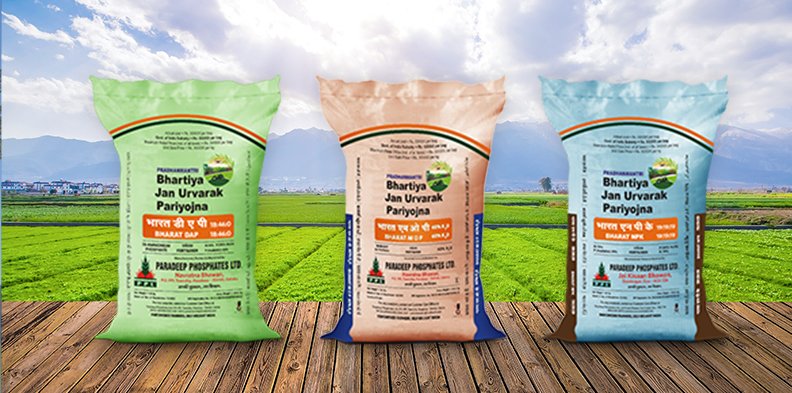Saturday, 21 February 2026

Paradeep Phosphates Ltd. (PPL), India’s second-largest private-sector phosphatic fertiliser producer, delivered a standout first-quarter performance for FY26, reporting a 58 per cent year-on-year increase in revenue to Rs 3,754 crore. Riding on a sharp uptick in fertiliser demand, production efficiency, and strong distribution reach, the company also doubled its EBITDA (including other income) to Rs 493 crore and posted a healthy Rs 256 crore in PAT, underpinned by robust sales across key nutrient grades.
Operationally, PPL produced 6.64 lakh tonnes of fertilisers in Q1 FY26, reflecting 23 per cent YoY growth, while primary sales rose 34 per cent YoY to 7.42 lakh tonnes—one of the highest quarterly volumes in its history. Demand was particularly strong for crop- and soil-specific NPK grades, with flagship N-20 sales hitting a record 2.24 lakh tonnes. The company’s nano fertiliser segment also gained traction, with 7 lakh bottles of nano-DAP and nano-urea sold during the quarter, reflecting its innovation-led product strategy.
“PPL delivered a strong financial and operational performance in Q1, aided by favorable rainfall and healthy reservoir levels,” said Mr. Suresh Krishnan, Managing Director & CEO of PPL. “Our operational momentum translated into record sales volumes, driven by N-20 and value-added NPKs like N-10, N-12, and N-19. Year-on-year sales and production volumes rose 34 per cent and 23 per cent, respectively, reflecting both market demand and our execution strength.”
The company’s phosphoric acid production grew 22 per cent YoY to 113 KTPA, while Sulphuric Acid output increased 30 per cent YoY to 283 KTPA—both critical intermediates for backward integration. Despite cost pressures from rising raw material prices, PPL maintained supply chain continuity and cost discipline by leveraging its long-term global supplier partnerships, on-site storage infrastructure, and strategic sourcing capabilities.
The company continued to strengthen its distribution footprint, reaching over 9.5 million farmers across 15 states through a network of more than 95,000 retail points. High POS sales velocity during the quarter further improved receivables management and working capital efficiency, allowing the company to preserve its lean financial profile. As of June 2025, the net debt-to-equity ratio was maintained at a healthy 0.77x, underscoring prudent fiscal management amid expansion.
Strategic Growth Projects Progressing on Schedule
Paradeep’s medium-term profitability strategy remains anchored in capacity expansion and integration. The sulphuric acid expansion project at Paradeep, which will increase capacity from 1.39 MMTPA to nearly 2 MMTPA, remains on track for commissioning by Q3 FY26. Simultaneously, the phosphoric acid capacity augmentation from 0.5 MMTPA to 0.7 MMTPA is also progressing as scheduled, with completion expected within two years. Both projects are expected to enhance self-sufficiency, secure input availability, and improve margin resilience.
In a key development, the company’s proposed merger with Mangalore Chemicals & Fertilizers Ltd. (MCFL) received shareholder approval in June and is now in the final stages of regulatory review under the NCLT process. The merger, once concluded, will create one of India’s most integrated and geographically diversified fertiliser players, with combined strengths in manufacturing, logistics, and farmer engagement.
Outlook: Positioned for a Strong Kharif and Beyond
With the Indian Meteorological Department forecasting above-average monsoons, and continued government focus on balanced fertilizer application, soil health, and food security, PPL anticipates strong demand during the ongoing Kharif season. The company remains confident in its ability to drive sustained growth through a combination of backward integration, product innovation, and deep agri-distribution infrastructure.
“Our integrated value chain—from global sourcing and efficient production to expansive retail and strong brand equity—positions us uniquely to serve the growing needs of Indian agriculture,” Krishnan added.
“We remain committed to disciplined execution, operational agility, and stakeholder value creation as we scale to meet the evolving needs of farmers and food systems.”